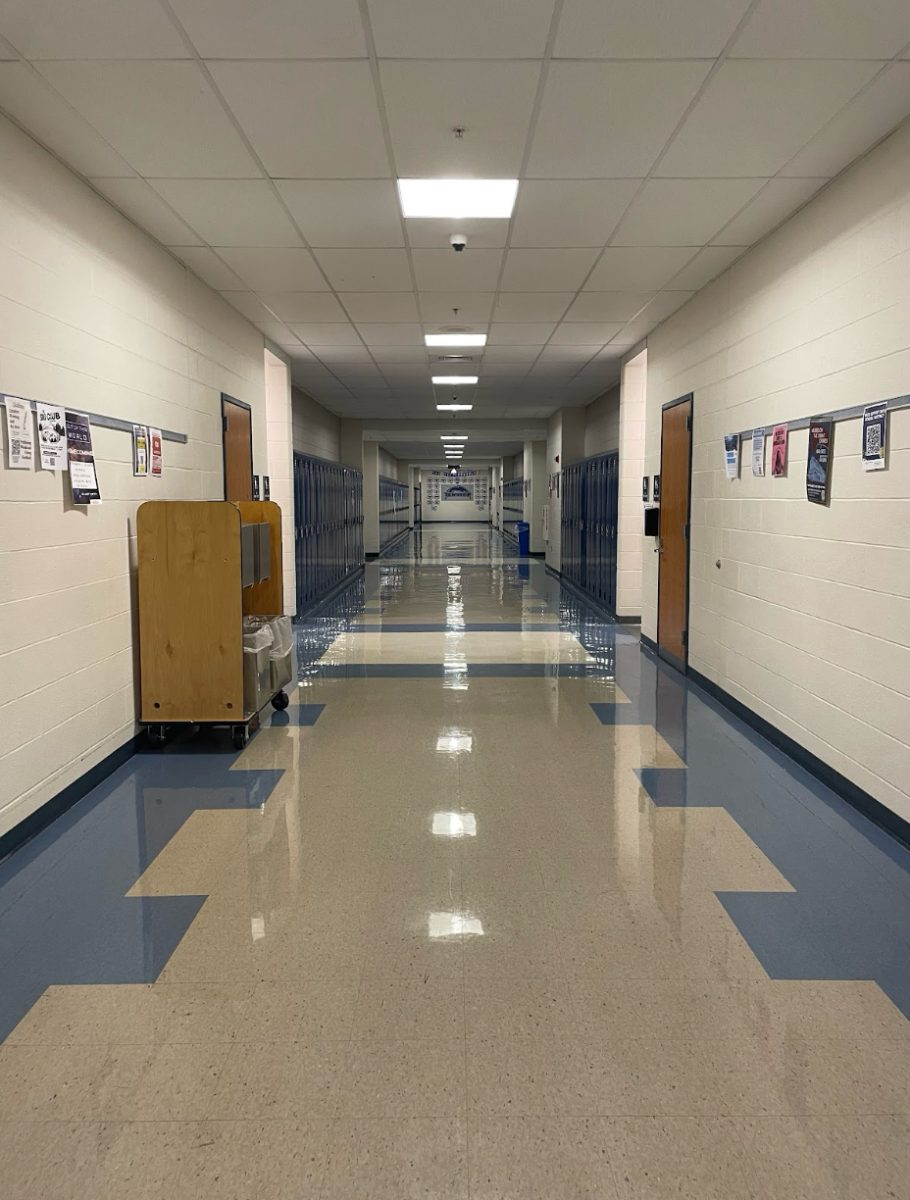As students enter their junior and senior years, their inboxes are filled with hundreds, if not thousands, of e-mails from colleges insisting they are the “perfect fit.” Gatherings with family and friends are filled with questions about the future while social media pushes rejection stories of high-achieving students from top colleges.
Despite this, applying to college is not as daunting as it may seem. In fact, parts of it can even be fun. The process allows you to explore new opportunities, reflect on your values and take control of your future.
Here are some ways to prevent college applications from taking over your life:
- Start Early
If you only take away one thing from this article, let it be this: Start early. The Common App opens on Aug. 1, and while it may seem like a drag to work on applications over the summer, your future self will thank you.
Senior Emily Campbell submitted her applications on Aug. 1 thanks to her parent’s encouragement.
“At first I felt very rushed since it felt like no one else started that early, but in the end, I was so thankful my parents made me apply when they did,” she said.
Campbell noted how nice it was to not have to deal with applications on top of schoolwork. Completing her applications early allowed her to enjoy senior year activities like her last homecoming and football games without the stress of looming deadlines.
Senior Norah Martin echoes this sentiment.
“The biggest piece of advice I have is to submit your applications over the summer. It sounds ridiculous, but start what feels like excessively early,” she said.
Students may struggle to write their college essays, but tackling them early can make a huge difference. As a part of Dr Penner’s IB English curriculum, students were tasked with drafting a college essay in October of their junior year. The initial class consensus regarding the assignment was dread. We wouldn’t need this essay for another 10 months, so why write it now? By the time summer rolled around, the last thing students wanted to do was draft another essay, and the class, including myself, was grateful that we had already written one and received valuable feedback from Dr. Penner.
“[Dr.] Penner’s feedback showed me what a college essay should include and whether or not I demonstrated the necessary values and growth that admissions officers like to see. Having the paper completed early allowed me plenty of time to refine it according to his suggestions,” said senior Zaara Seemeen, who used the essay she wrote in IB English for all of her applications.
Getting a head start on your college essay frees up plenty of time for writing supplemental essays, perfecting your activities section of the Common App, and ultimately enjoying senior year.
- Apply Early Action
Most schools have three types of application deadlines: early decision, early action and regular decision. Early decision is binding, meaning if you apply for early decision to a school and get in, you must go to that school. This pathway is best for students aiming to attend a highly selective school, as the early decision acceptance rates tend to be higher. If you don’t have your heart set on one school, applying for early action is arguably the best option. Both early action and early decision deadlines typically fall in early November, so applying early essentially forces you to get the process over with and enjoy the rest of your senior year.
Applying early action also means you receive your admissions decision sooner, giving you more time to consider your options and make a final decision. If you were deferred or denied from a school, you can decide another college may be a good fit. Applying early action allows you the flexibility to submit more applications before regular decision deadlines in January.
- Be Authentic
Most, but not all, colleges require supplemental essays as part of their application. These essays are used by admissions officers to learn more about who you are outside of your grades and extracurricular activities. These essays tend to lure students into the trap of crafting an essay that tells the colleges what they want to hear rather than providing insight into who the student really is.
According to Harvard University, generic, overly-polished essays blend in, while essays about topics that are genuinely important to you stand out. Colleges aren’t looking for a perfect candidate; they want real people with passions, perspectives and experiences.
Senior Aanya Iyengar shared her love for the Pitt Honors College essay prompt: “If you had 10 minutes and the attention of a million people, what would your TED Talk be about?” Iyengar said she enjoyed writing this essay because it gave her a chance to showcase what is truly important to her. Her ability to dive deeper into her interests in a non-superficial way made the process significantly easier and less stressful.
- Research Before You Apply
This tip may not apply to everyone, but doing research first saves time, energy and money.
If a school doesn’t have your intended major or program, you probably should not apply. Without a fee waiver, applications typically cost around $70, so applying selectively can save you hundreds of dollars and hours of writing essays. Additionally, narrowing down your list of schools early makes the final decision process easier since you have fewer options to choose from.
However, if you are torn on whether or not to apply to a school and you can truly see yourself there, go for it. Some students submit applications to prestigious schools just to see if they can get in. That can be fun, but if you’re not seriously considering attending, it may not be worth the effort.
- Research the Application Process Itself
Once you hit submit and the virtual confetti starts flying, the process isn’t over. After receiving your application, colleges send follow-up instructions via email, but they can easily get lost in a crowded inbox, and sometimes they are unclear.
“As the school year went on, I felt increasingly lost in the admissions process,” Seemeen said. “I felt like I was hearing more about things I needed to do at random from my friends rather than from my counselor or the schools I applied to.”
This includes things like filling out the self-reported academic record (SRAR,) transcript-release forms, free application for federal student aid (FAFSA,) the college scholarship service (CSS) profile and sending standardized test scores via CollegeBoard. Though these many acronyms may seem intimidating, they are not as complicated as they seem, and they do not take enormous amounts of time to complete.
Different schools require different items, so it is important to check your application portals to see which ones are necessary. If you’re unsure about a step, ask for help. High school counselors and college admissions staff/regional admissions counselors are all happy to help guide you.
College applications can feel overwhelming, but they don’t have to take over your life. Allow yourself to explore, change your mind and be excited about the future.









